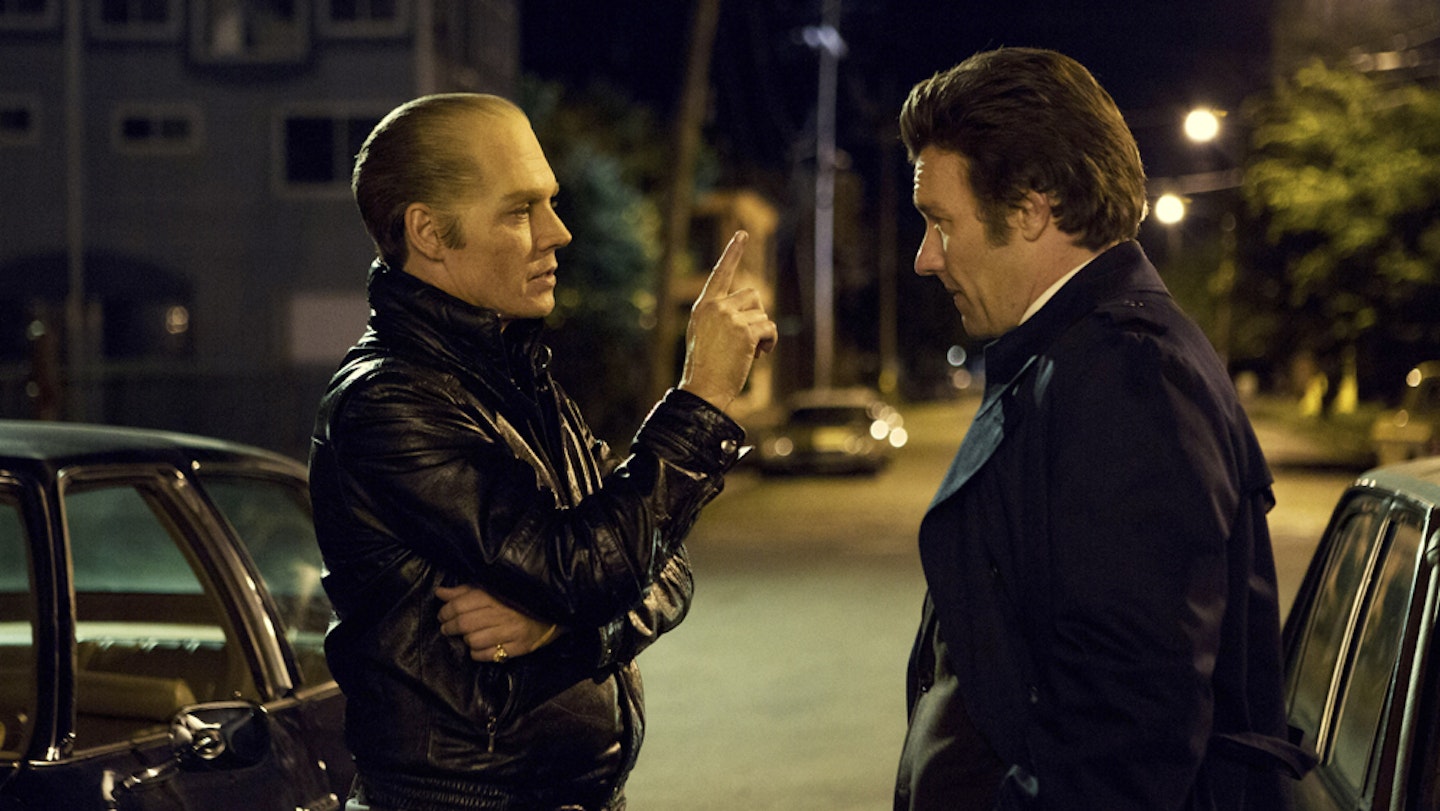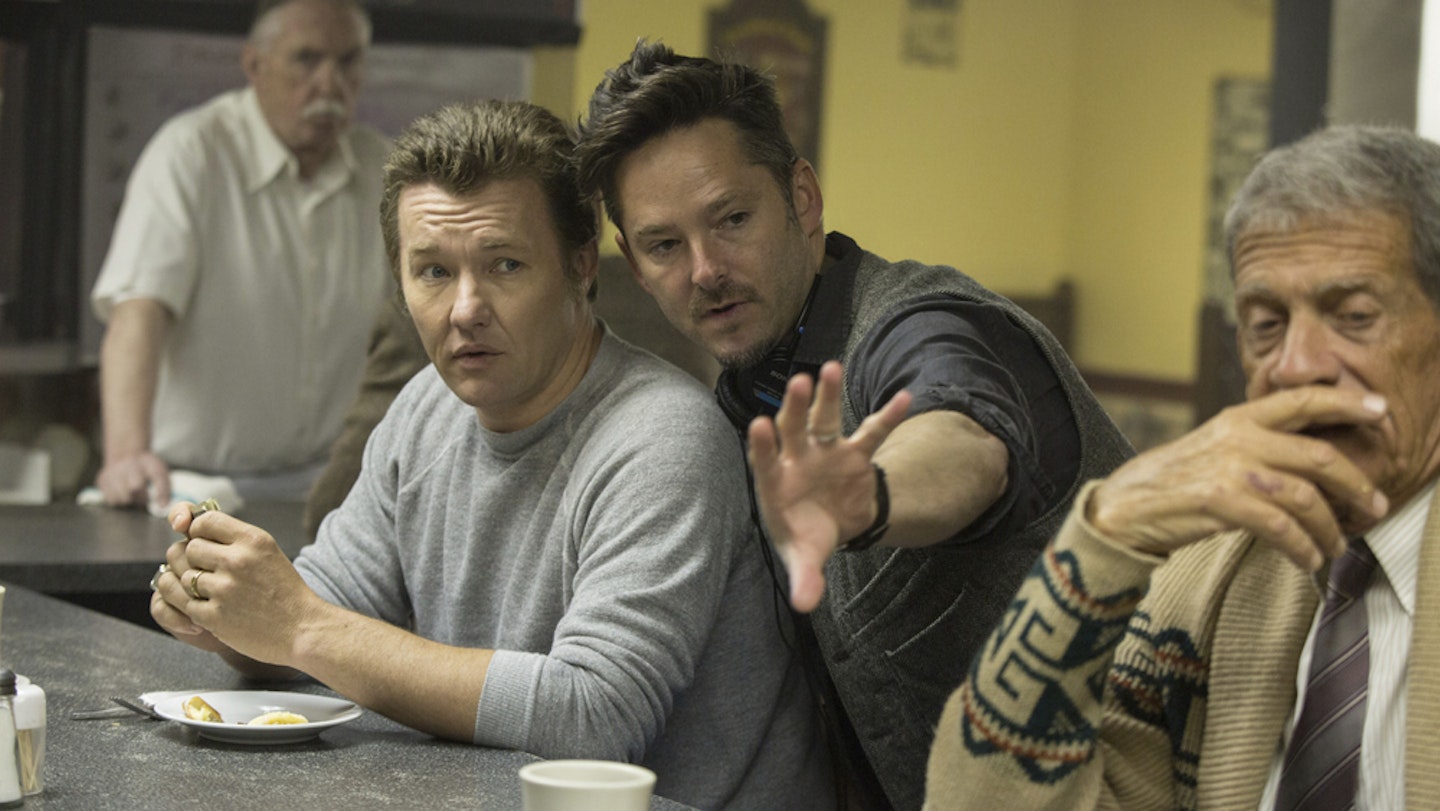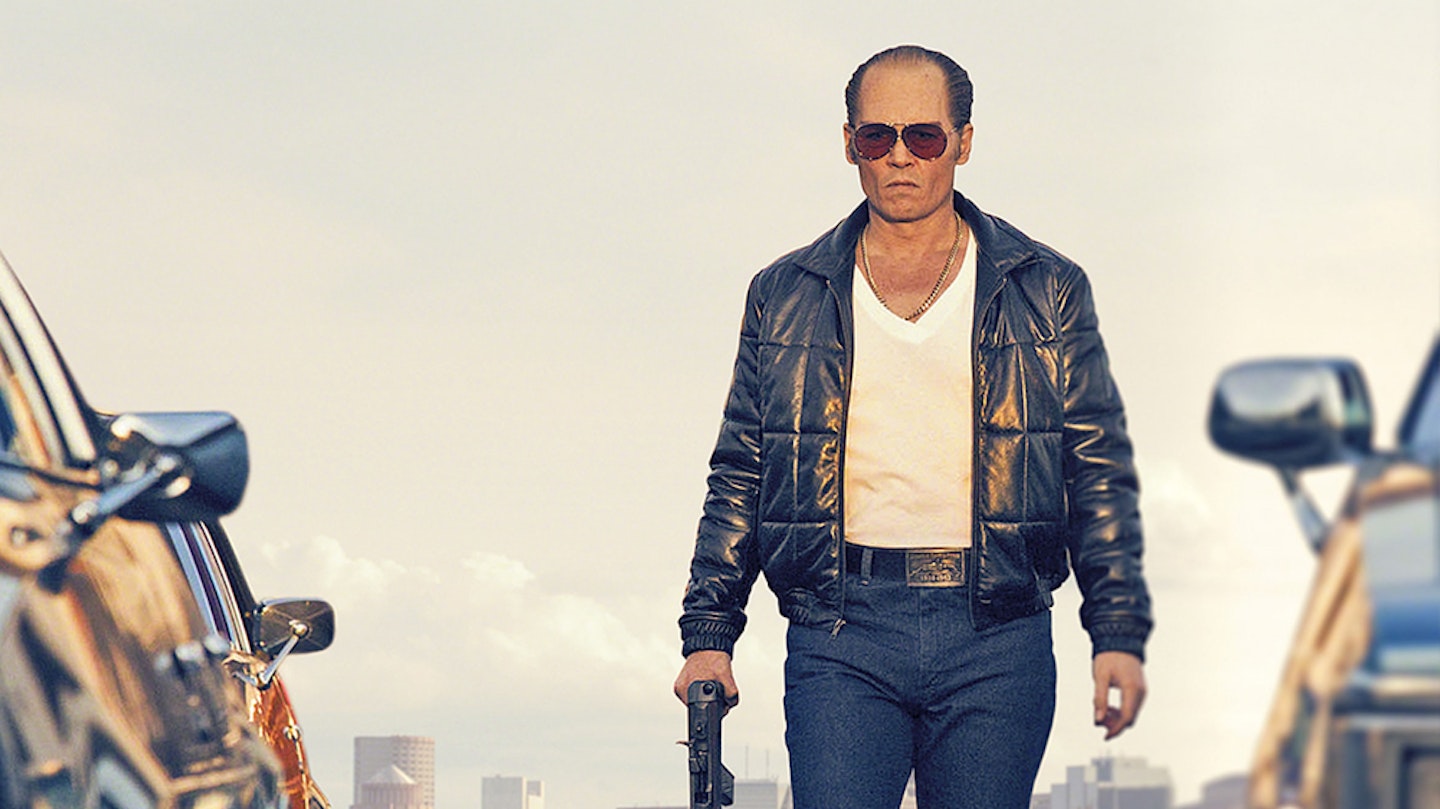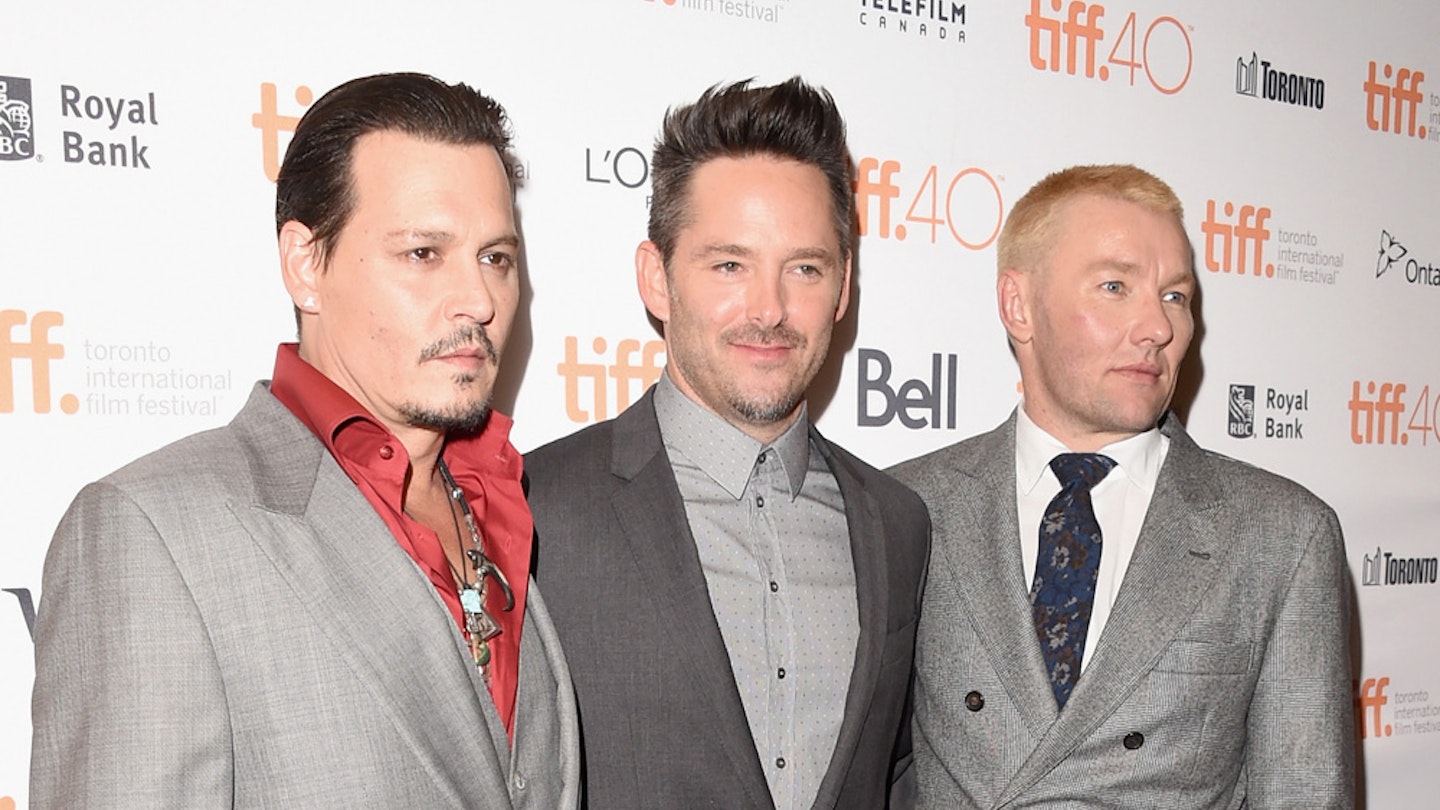Scott Cooper’s Black Mass, the story of notorious South Boston gangster Jimmy ‘Whitey’ Bulger (Johnny Depp), and his corrupting influence on FBI agent John Connolly, is one of the more interesting gangster movies of recent times. And Cooper, the director of Out Of The Furnace and Crazy Heart, is an interesting figure: witty, intelligent and aware he had to bring something to the table to set his film apart from Goodfellas, The Godfather and other gangster movies. We spoke to him in London recently.

It’s a dangerous game when you make a quote-unquote gangster film.
Well, literally and figuratively. Especially when they’re still alive. But I did make the film with great trepidation, because many of the best films, in America and the world over, live in the crime/gangster genre. The bar is very high and to try to meet those expectations is a fool’s errand. I didn’t really set out to make a gangster picture but a very humanistic look at monsters and men that have left an emotional scar on the city of Boston, as opposed to adhering to the tropes of gangster films. I’m sure there are a lot of people who would prefer this to feel more like Goodfellas or something fun and aspirational, but I had no interest in making a film that glamourised or romanticised these men in any way, or trivialised them because there are victims, and victims’ families. I wanted it to be as uncompromising and searing as possible. Some people like that. Some don’t, I’m sure.
Black Mass has a very stark tone.
It had to be unflinching and uncompromising, or else I am trivialising these events. You never want people to feel that. Too often you watch gangster pictures and you aspire to that life. For two hours you can escape your life, live within that decadent life and then return to your more sane life. I didn’t want people to feel that way. I wanted this to linger with people. There’s nothing worse for me than seeing a movie on Friday night and then by the time my head has hit the pillow that night, I’ve forgotten what I’ve seen or I couldn’t care less. I want people to feel my movie on Saturday morning or Sunday afternoon or Monday around the watercooler.
Do you see a thematic link between the films you’ve made so far?
Sure. I probably tend to make films about people who live on the margins of society, the dispossessed or those who are distressed. I like to feel the American landscape, whether it’s the desert southwest or the steel country of Pennsylvania or the mean streets of South Boston, I like them to play a strong visual component. The bonds of brotherhood, a strong sense of loyalty in both films, people who were in search of something, but I don’t know if those are conscious decisions. I think it was the great French director, Jean Renoir, who said, ‘film directors make one film their whole career and then they break it into pieces and make it all over again’. There’s probably some truth to that, for sure, but I tend to be drawn to the darker recesses of the human psyche. It’s probably time for me to do a romantic comedy. I’m not sure anybody would want to see that.
I had no interest in making a film that glamourised or romanticised these men in any way.
There’s a thread that differentiates it from other gangster movies, which is the John Connolly thread, as this FBI guy is slowly seduced by Jimmy Bulger’s lifestyle…
A man who was seduced from a very young age, who was inspired to do civic duty and who ultimately, through Shakespearean turns, becomes a very broken man. I think that’s universal, you can see that in societies whether you live in Boston, London, Tehran or Tokyo. That’s very universal. A character that some people empathise with and wince when you see he’s starting to make wrong decisions. I don’t know if people ultimately care for him at the end of the picture, but there’s an emotional connection that I think the audience has with John Connolly. He’s the player who touches everybody, whether it’s Jimmy Bulger, Billy Bulger, or his colleagues in the FBI. I’m so pleased with Joel Edgerton’s performance. He’s fantastic in the film. I remember Fred Wyshak, the prosecutor who brought the Winter Hill Gang down, visited the set one day to watch Corey Stoll film his scenes, because Corey’s playing him. He said, ‘who’s that guy playing John Connolly? Is he from South Boston?’ I said, ‘no, he’s from Australia’. He said, ‘what? Scott, I have known John Connolly for thirty years and tried to bring him down. That man is John Connolly’. Similarly, Whitey Bulger’s attorney came by the set and said he saw a spectre, like a ghost had appeared. Johnny’s eyes were just like him, the way he moves, the way he talks.

As a former actor yourself, do you have different approaches for Johnny and Joel?
You have different approaches for every actor, whether it’s Jeff Bridges, Christian Bale, Robert Duvall, Colin Farrell, this cast. I revere actors. Like all human beings, we’re all different. You have to treat people differently and understand that we all have a process, and what I realised is that the best actors are the ones who crave the most direction or the most collaboration, from Johnny to Jeff to Duvall to Bale. Woody Harrelson, Forest Whitaker, Kevin Bacon, these are veterans who really love to get in the trenches with the director and explore character, psychologically, emotionally. Either it’s emotionally truthful or it isn’t. Too often I see performances that aren’t rooted in truth. Oftentimes, those are performances that tend to win awards. The most acting equals the best acting.
Too often I see performances that aren’t rooted in truth. Oftentimes, those are performances that tend to win awards.
When you meet actors, do you sense how to deal with them?
No question. I don’t really like to audition actors. You spend a lot of time getting to know them generally and then doing some investigative text work and seeing what DNA they share with the character. I don’t like to rehearse, I think it makes performances very stale and you can see the cogs turning with actors as they try to hit certain emotions that they’ve hit in rehearsal.
You’re not a 99 takes guy, then.
Very few, very few. If you know how to direct actors, you don’t need that many.
What’s your take on the title – is Whitey a cancer of some kind?
That’s the way I see it. Many people interpret it differently, but I always saw it as this black, cancerous mass in the city of Boston, infecting the justice system, the FBI, and certainly the community of South Boston. I guess if you go to a doctor, that’s the last thing you want to hear, this black mass that could be growing, that was my interpretation. It was nothing to do with Satanic rituals, or even the Catholic faith, it was more about that.

There is a school of thought that Whitey is a Satanic figure.
Sure. One can see that anybody who inflicts that kind of pain and suffering upon people for their own gratification is the devil incarnate. Certainly, I couldn’t imagine being a family member who has lost someone to that type of violence. So for many people I’m sure he was.
It was a very conscious decision to make Johnny look as much like Whitey as possible.
Yes, otherwise he looks like Johnny Depp, who looks like Donnie Brasco, or J.M. Barrie or anybody else that Johnny Depp has played when he doesn’t have the accoutrements of make-up. Otherwise you just fictionalise everything.
The eyes are very striking.
The truth is, he was known to have larger blue eyes that are extremely piercing and would peer through your soul. So unnerving to look at that it was very difficult to maintain eye contact with him, I’m told, having never met him. This is what I’ve heard in South Boston. Johnny and I worked very closely with those people who knew him to get those eyes right. It is chilling. You can feel that gaze. It has a very powerful effect on you.
Did you try to meet Bulger?
I tried. I wrote him a note, but he had no interest in meeting me. Johnny Depp reached out to him to try to spend time with him to glean any kind of insight into his psyche. I don’t blame the guy, he’s not happy with any of the books that have been written about him, and he’s been serialised in many ways and fictionalised. I certainly wouldn’t want anybody making a film about my life, as boring as it is. I barely know myself, much less another filmmaker getting to know who I am.
What was your awareness of the story before it landed on your desk?
I was very aware of it. When I lived in New York I was aware of the Whitey Bulger mystique which filtered down the coast. He was arrested a couple of miles from where I lived in Los Angeles and then his subsequent trial, these dark secrets were unearthed. The truth was stranger than fiction. If I had written a fictitious screenplay and taken it to Warner Bros., they would have said, ‘and he wins the lottery, Scott? Come on’. And he did. With some help. You can’t make this stuff. It’s Shakespearean, and it actually goes back further, to the Greeks. This is what drama was founded upon.
What’s next for you? [note: since this interview, Cooper has announced his next film will be White Knight.]
I’m going to make an animated film at some point, based on a really wonderful graphic novel called Stitches, by David Small, that I love. I’m in the process of writing a film that takes place in the American West that Christian Bale is going to star in and produce with me. You always want to challenge yourself. At the end of your life, you want to look back and hope that you’ve held a mirror up to society. Or at least I do, and you are trying to accurately depict that as much as you can in a narrative feature, and that your films had something to say thematically and move people, but most importantly that they stay with you. Certain images or a shard of music or something else.
Black Mass is in cinemas now.
